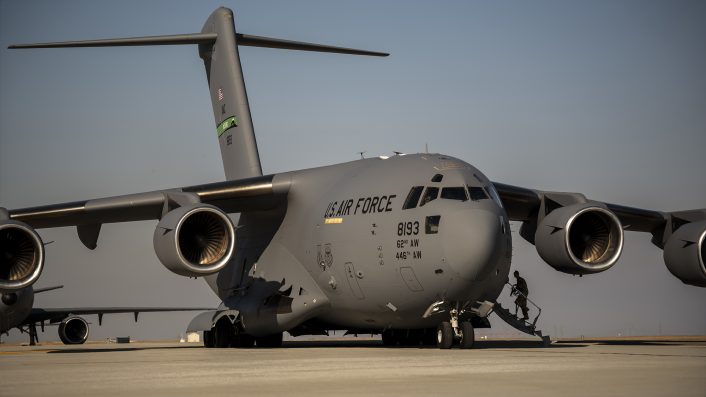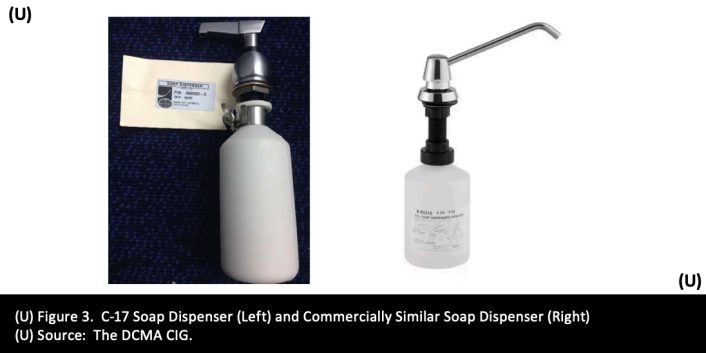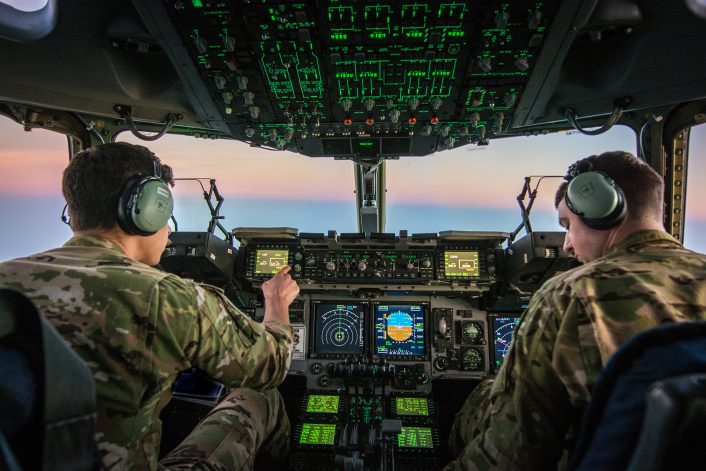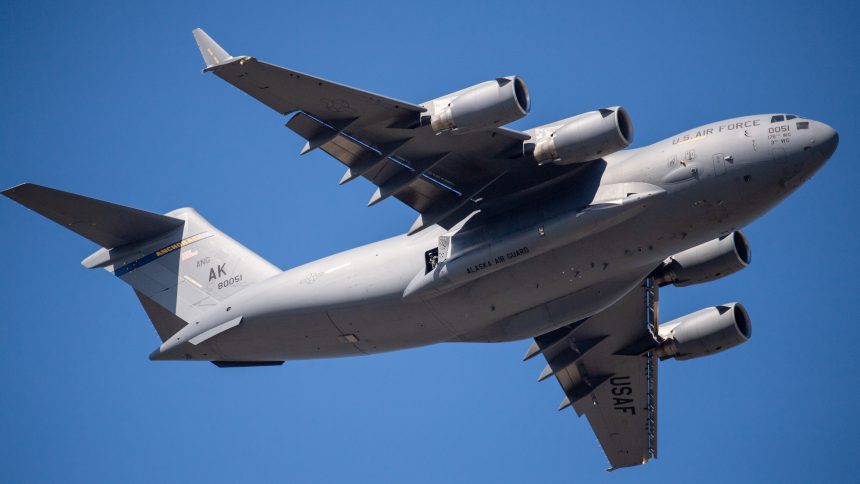Boeing charged the Air Force excessive prices for some C-17 spare parts, DoD Inspector General report highlights.
In an interesting new report, the Department of Defense’s Office of Inspector General (DoD OIG) has shed light on significant issues surrounding the pricing of spare parts for the U.S. Air Force’s C-17 Globemaster III transport aircraft. The audit, prompted by a tip-off to the DoD Hotline, aimed to determine whether the U.S. Air Force had obtained fair and reasonable prices for essential spare parts under Boeing’s performance-based logistics contracts for the C-17. Findings from the report indicate notable overcharges, raising concerns about the effectiveness of internal controls in protecting taxpayer dollars and maintaining the operational readiness of this critical aircraft.
C-17 and Boeing Contracts
Since October 2011, the U.S. Air Force has relied on Boeing to support its C-17 fleet through the C-17 Globemaster III Integrated Sustainment Program (GISP), an initial 10-year, $11.8 billion contract for supply and maintenance. In 2021, a follow-on $23.8 billion contract known as the Globemaster III Sustainment (G3) contract extended these support services through 2031.
Under these contracts, Boeing has purchased the necessary spare parts for the C-17, with the Air Force reimbursing the company for these purchases. The DoD OIG’s audit sought to examine the pricing fairness within this arrangement, aiming to confirm whether the Air Force was paying reasonable costs for these crucial components.

Key Findings of the DoD Audit
Inspector General Robert P. Storch emphasized the importance of fair pricing, noting that without effective oversight, unnecessary overpayments on spare parts could severely limit the number of parts available for purchase within budget constraints, thereby impacting C-17 readiness. The report highlighted several key issues:
- Pricing Discrepancies: The audit revealed that the Air Force failed to pay reasonable prices for approximately 26% of the reviewed spare parts, amounting to a combined value of $4.3 million. Furthermore, auditors could not verify whether prices were fair and reasonable for over half (54%) of the reviewed parts, worth over $22 million, due to a lack of historical cost data and challenges in obtaining supplier quotes or comparable commercial part pricing.
- Egregious Markups: In one notable example, the Air Force was found to have paid more than 80 times the commercial cost for a lavatory soap dispenser, marking a 7,943% increase over standard market prices. Such pricing inconsistencies raise significant questions about the contracting and verification processes in place.
- Missed Oversight Opportunities: The DoD OIG report also identified key lapses in internal controls, citing that the Air Force failed to validate the accuracy of cost data during contract negotiations, track price increases during the contract term, and thoroughly review invoices to ensure prices were fair before payment.

Causes of Overpricing Issues
The report attributes these overpricing issues to several structural weaknesses within the Air Force’s contracting and procurement practices:
- Inadequate Data Validation: The Air Force did not consistently validate cost data during negotiations, reducing its ability to challenge proposed prices effectively.
- Lack of Contract Surveillance: During contract execution, price increases were not systematically tracked, allowing inflated costs to go unnoticed.
- Incomplete Invoice Reviews: The Air Force failed to implement adequate review procedures for invoices, which contributed to payments that did not align with fair pricing standards.
Moreover, the report identified a lack of clear guidance within the Department of Defense for contracting officers, specifically regarding verification of bills of materials before negotiation and review of invoices for compliance with allowable and reasonable costs.
Financial and Operational Implications
The audit estimated that the Air Force overpaid nearly $1 million on just 12 types of spare parts across the GISP and G3 contracts from fiscal years 2018 through 2022. This figure, while troubling on its own, reflects a larger risk to the financial integrity of the Air Force’s procurement strategy. The DoD OIG noted that significant overpayments could limit the number of parts that Boeing is able to purchase within contract budgets, ultimately impacting the availability and readiness of the C-17 fleet for critical missions.
Recommendations
To address all the identified issues, the DoD OIG issued eight recommendations aimed at bolstering oversight and ensuring the Air Force achieves fair pricing on future purchases. These recommendations include:
- Enhanced Contracting Officer Guidance: The DoD OIG recommended that the Department of Defense’s Principal Director of Defense Pricing, Contracting, and Acquisition Policy collaborate with the Defense Acquisition Regulations Council to clarify Federal Acquisition Regulation requirements. This includes specific guidance for requesting technical analyses on bills of materials and verifying the accuracy of forecasting systems.
- Price Monitoring Protocols: Another key recommendation urges the Air Force Life Cycle Management Center Commander to direct the C-17 contracting officer to conduct regular price monitoring throughout the contract’s term. Specifically, any price increases exceeding 25% should trigger a requirement for Boeing to provide detailed justifications.
Inspector General Storch underscored the importance of these recommendations, pointing out that implementing stronger internal controls will be essential for protecting taxpayer funds and ensuring the Air Force’s resources are used effectively. Without these measures, there is a risk that the Air Force could continue to overpay for spare parts, diminishing the financial efficiency of its logistics support and potentially undermining the readiness of the C-17 fleet.










